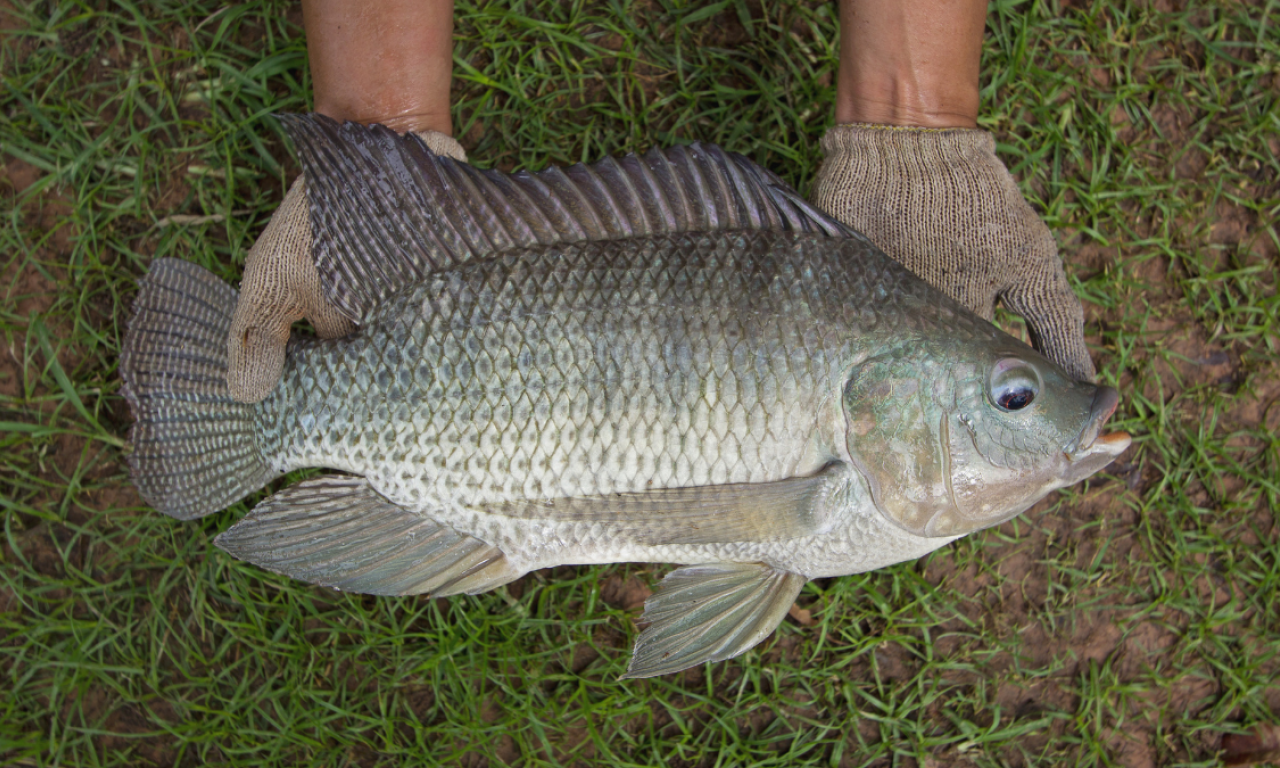
- WorldFish and CII developed a report on the business case for scaling Tilapia production in India titled ‘Business Case for Scaling the Production of Tilapia in India: A Report for the SCALE Committee of the Government of India.’
- Understanding the business opportunities of tilapia production is pertinent to delivering higher returns on investments while supporting the attainment of livelihood security as well as climate adaptation and mitigation goals in India.
India is the fourth-largest producer of fish and other aquatic foods in the world. With nearly 10 million people residing in more than 4000 coastal communities and relying on the sector to earn a living, initiatives to improve fisher and farmers’ incomes are crucial to reaching India’s goal of ‘No Poverty by 2030’.
Given that almost half of the population is engaged in food production systems and their associated supply chains, improving revenues within the sector, especially in aquaculture and fisheries, is pertinent to delivering higher returns on investments while supporting the attainment of livelihood security as well as climate adaptation and mitigation goals.
Strengthening collaborations across India

In the pursuit of a sustainable food systems transformation, WorldFish leads their 2030 Research Strategy on ‘Aquatic Foods for Healthy People and Planet’ and the One CGIAR ‘Resilient Aquatic Food Systems (RAqFS)’ Initiative, which aims to build the resilience of aquatic food systems and realize their full potential for nature, people and climate. They aim to tackle systemic challenges in data gaps, power symmetries and water resource management, through research and innovation.
With goals to achieve impact at scale across food, nutrition and livelihood security, social inclusion, climate adaptation and mitigation as well as environmental health, India became one of the major countries of interest for WorldFish and the RAqFS Initiative. Efforts to establish meaningful collaboration started as early as July 1996, with Indian Council of Agricultural Research (ICAR) and WorldFish establishing a Memorandum of Understanding that spanned into a more recent six-year research collaboration agreement until 2024.
Following this, more partnerships were established with research organizations, state governments, donor bodies and private sector entities, such as the Fisheries and Animal Resources Development (FARD) Department of the Government of Odisha, the Government of Assam, United States Agency for International Development (USAID), World Bank and Deutsche Gesellschaft für Internationale Zusammenarbeit (GIZ) to support WorldFish-led projects, including the promotion of genetically improved farmed tilapia (GIFT) as a global public good for food, nutrition and livelihood security.
Promoting local aquatic food production for commercial expansion

At present, more than 50 percent of global commercial tilapia production is based on GIFT or GIFT-derived strains, where WorldFish has played a pioneering role through its long-standing tilapia genetic improvement program since the 1980s.
With this established foundation, WorldFish is seeking to build a strong program in India by further strengthening the research and development with our partners, including the Confederation of Indian Industries (CII). CII is a non-government, non-profit, industry-led and industry-managed organization, which works to create an environment conducive to the growth of industries in India through an advisory and consultative process.
The CII charts its pathway toward change by working closely with the Government of India on policy issues to enhance efficiency, competitiveness and business opportunities in local aquatic food sectors. This is achieved through a range of specialized technical backstopping services and strategic global linkages that CII then interfaces with thought leaders, including Pawan Goenka, who chairs the Steering Committee for Advancing Local Value-Add and Exports (SCALE).
As part of SCALE’s work to advance the growth of the tilapia industry in India, WorldFish and CII have collaboratively developed a report on the business case for scaling tilapia production in India titled ‘Business Case for Scaling the Production of Tilapia in India: A Report for the SCALE Committee of the Government of India,’ which will be officially launched soon.
The report analyzes the opportunities and what is needed to significantly expand tilapia production in India through a collaborative approach that leverages WorldFish’s expertise in scaling Tilapia production, including the development of broodstock hatchery, infrastructure, finance, capacity building, branding and marketing as well as CII’s networks with state fisheries departments to further reach out to fishers, farmers, entrepreneurs and donors.
By working with national public and private partners, such as CII, WorldFish aspires to harness the potential of fisheries and aquaculture by scaling technologies, innovative tools and better practices to achieve impact at scale in aquatic food systems in India.